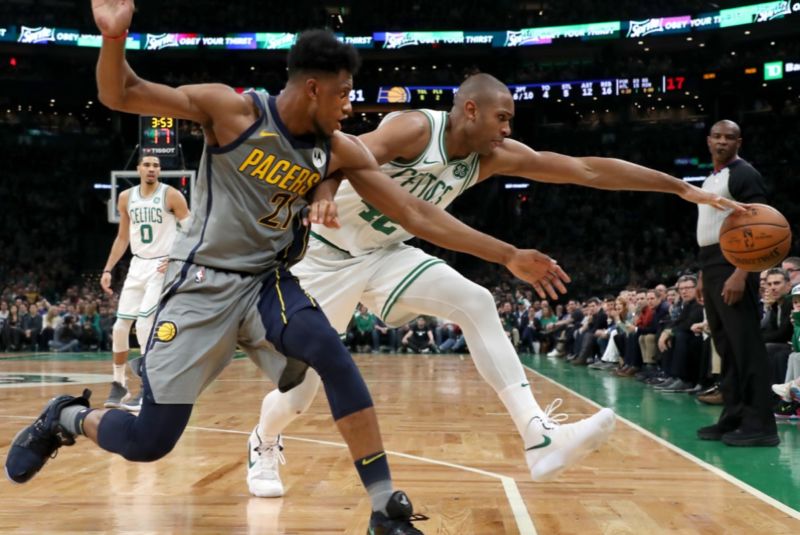Out of bounds: Why basketball players believe they weren’t last to touch ball

Enlarge / Boston Celtics' Al Horford and Indiana Pacers' Thaddeus Young chase a ball out of bounds during a March game. A new study found that a self-centered bias in time perception might affect how each perceives who touched the ball last. (credit: Matthew J. Lee/The Boston Globe/Getty Images)
With the NBA playoffs in full swing, emotions are running high among super-fans, inevitably leading to lots of heated arguments about bad referee calls and disputed plays. For instance, when a ball goes out of bounds, it can sometimes be challenging to determine which player touched it last. Both players will undoubtedly argue their opponent touched it last, trying to give possession of the ball to their own team. The other player will just as forcefully argue the opposite.
Who is right? According to a new paper in Science Advances, both players are subject to a kind of temporal bias whereby they will perceive themselves touching the ball first. "Our brains tell us that actions generated by ourselves come before simultaneous external events," the authors write. "Briefly, we have identified what may be a principal cause of arguments in ball games, and it's about time."
According to co-author Ty Tang, a graduate student in psychology at Arizona State University, the idea for the study emerged from conversations with his advisor, Michael McBeath, about subjective perception, particularly of time. This naturally evolved into how this subjective perception plays out in sports, specifically arguments over who touched the ball last before it went out of bounds in basketball. Tang proposed a series of three experiments to determine if the players might genuinely experience hitting the ball before their opponents in such scenarios. It wasn't the chaotic environment of a live basketball game, but it allowed them to control the variables to produce a robust study.
Read 9 remaining paragraphs | Comments